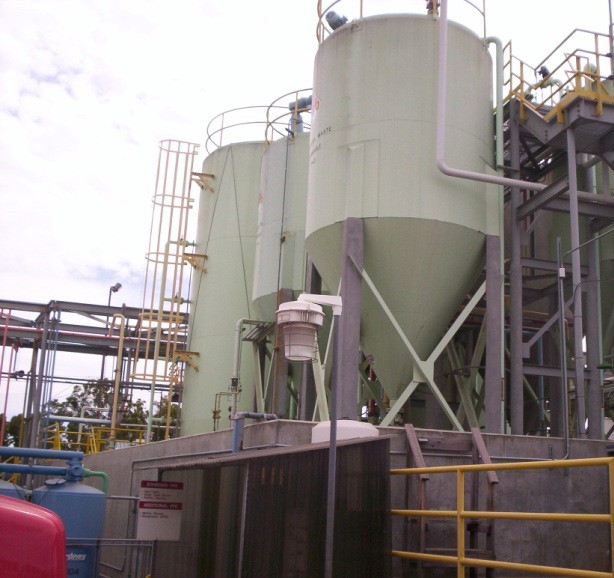Seismic Assessment of Steel Tanks
MMI Engineering performed seismic assessments of 17 steel tanks located at Clean Harbors Inc’s facility in San Jose, California. The tanks ranged in size from 1,000 to 25,000 gallons and were used to store water, wastewater, chemical products, and organic / inorganic wastes. Out of the 17 tanks, 12 were flat bottom tanks, while the remaining 5 were cone-bottom elevated tanks supported on steel braced frames.
As a requirement of the Department of Toxic Substance Control (DTSC) permit, Clean Harbors performs yearly measurements of shell thickness for the tanks to detect any loss due to corrosion. These annual measurements must be greater than a minimum specified shell thickness for the tanks to stay in operation. MMI Engineering was hired by Clean Harbors, San Jose, to perform necessary design calculations and establish the minimum shell thickness for which the tanks can safely stay in service. Once established, the annual measurements had to be greater than the minimum specified by MMI.
Our Approach
The minimum shell thickness for the flat bottom steel tanks was established by computing hoop tension in the shell under static and hydrodynamic loads during a seismic event, compressive stresses in the tank shell (in case of self anchored tanks), shear stresses in the tank shell at anchor chairs (in case of mechanically anchored tanks) and minimum shell thickness as specified by API 653. The minimum shell thickness for the elevated tanks was established by computing hoop tension under static and hydrodynamic loads. The computations also required consideration to relative movement of the legs and the shell, because the columns were much stiffer and stronger than the tank shell. Both cases of “leg pushed into shell” and “leg pulled away from shell” were considered. The minimum shell thickness was based on the lowest shell thickness required to keep the stress demand within the allowable limits defined in API 650 and AWWA D100.
Outcome
MMI used extensive experience in dynamic analysis of fluid containing tanks with a range of support conditions and material types located in areas of high seismic hazard to perform the necessary calculations and approval by regulators at the DTSC.
For more information surrounding our Geotechnical expertise, please contact Geosyntec on 0845 055 0575 or email us.
